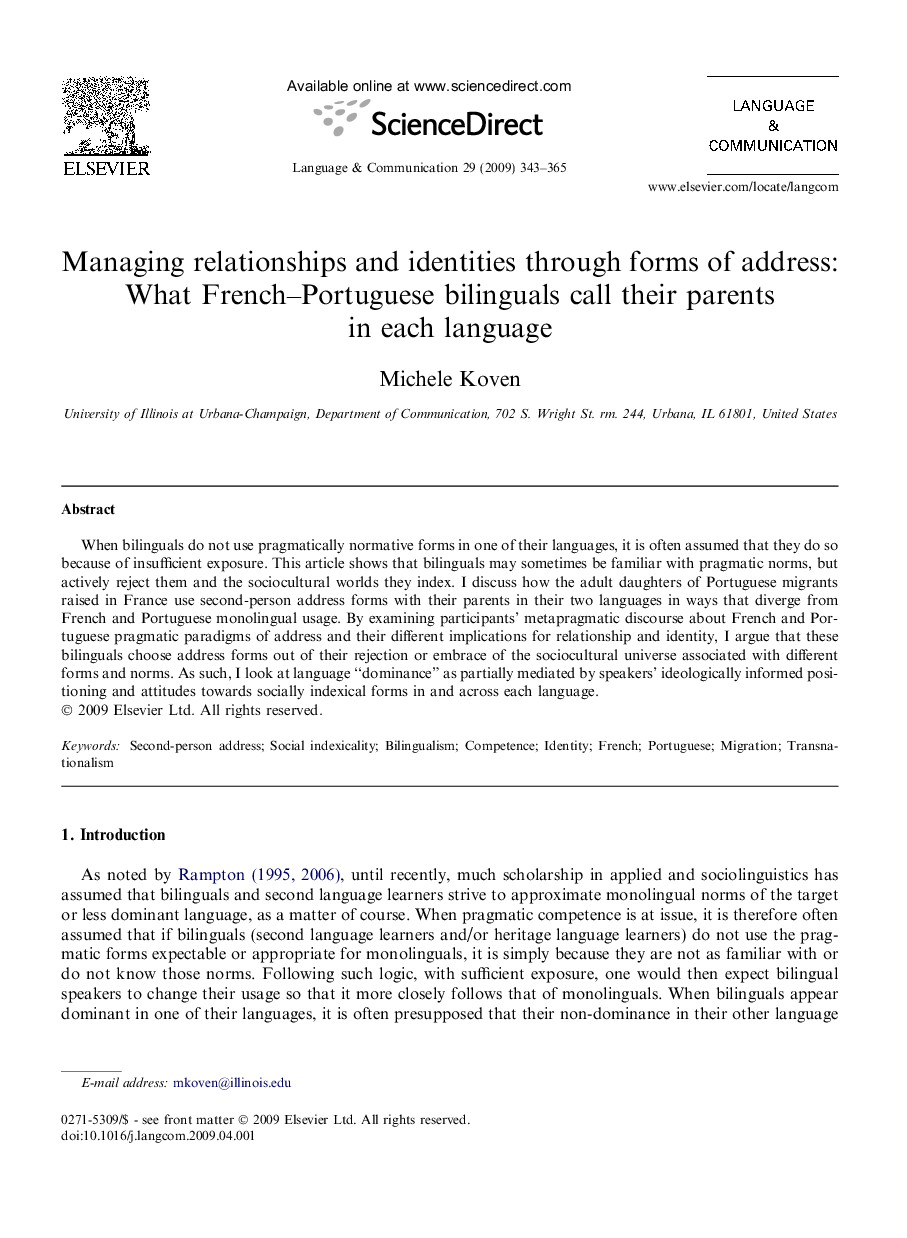| Article ID | Journal | Published Year | Pages | File Type |
|---|---|---|---|---|
| 935125 | Language & Communication | 2009 | 23 Pages |
When bilinguals do not use pragmatically normative forms in one of their languages, it is often assumed that they do so because of insufficient exposure. This article shows that bilinguals may sometimes be familiar with pragmatic norms, but actively reject them and the sociocultural worlds they index. I discuss how the adult daughters of Portuguese migrants raised in France use second-person address forms with their parents in their two languages in ways that diverge from French and Portuguese monolingual usage. By examining participants’ metapragmatic discourse about French and Portuguese pragmatic paradigms of address and their different implications for relationship and identity, I argue that these bilinguals choose address forms out of their rejection or embrace of the sociocultural universe associated with different forms and norms. As such, I look at language “dominance” as partially mediated by speakers’ ideologically informed positioning and attitudes towards socially indexical forms in and across each language.
